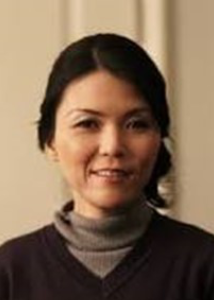- Home
- Center for Cancer Research
- Researchers
- Saori Furuta, PhD
Saori Furuta, PhD

Associate Professor
Faculty Research Staff at MetroHealth Medical Center
Associate Professor in the Department of Medicine at CWRU
Member of Case Comprehensive
Contact
MetroHealth Medical Center
Rammelkamp Center for Research, R357
2500 MetroHealth Drive, Cleveland, OH 44109
216-778-8919 | [email protected] | [email protected] |Website: Furuta Lab
Research
Dr. Furuta found that different subtypes of breast tumor associated macrophage (i.e., immune-stimulatory M1-type vs. immune-suppressive M2-type) employ different arginine metabolic pathways for their anti- or pro-tumor activities, respectively. Then, conversion of arginine metabolic pathways could induce functional reprogramming of these macrophages. She currently tests whether arginine metabolic shift could also reprogram tumor-associated natural killer cells and this strategy could be utilized for breast tumor prevention and treatment. She further investigates whether arginine metabolic shift could also influence gut bacteria and alter their interactions with immune cells for pro- or anti-tumor functions. Additionally, she is examining the roles of S-nitrosylation (covalent modification by nitric oxide) in functional modulations of different tumor-associated proteins and the relevance of the defect to breast cancer pathogenesis. She has been developing a new therapeutic strategy to restore site-specific S-nitrosylation of TGF -β and HER2 proteins for their allosteric inhibition in tumors.
Biography
Dr. Furuta is a native of Japan. She obtained her B.S. in Biochemistry at University of California, Riverside; MS. In Chemistry & Biochemistry at California State University, Los Angeles, with honor, and Ph.D. in Biological Sciences at University of California, Irvine. During her graduate training, she was mentored by the pioneers of cancer biology, Jamil Momand (p53 and MDM2) and Wen-Hwa Lee (BRCA1/2 and RB1). She then received her postdoctoral training by Mina Bissell in Lawrence Berkeley National Laboratory. Bissell’s vision of ‘dynamic reciprocity’ of the three-dimensional tissue microenvironment completely changed Saori’s view of cell biology. She joined the faculty of the Department of Cancer Biology at University of Toledo as an Assistant Professor in November 2015 and was promoted to a tenured Associate Professor in 2021. Her lab relocated to MetroHealth/Case Western Reserve University in October 2022.
Education
BS. University of California, Riverside
MS California State University, Los Angeles
Ph.D. University of California, Irvine
Postdoc Lawrence Berkeley National Laboratory
Links
My Bibliography – https://www.ncbi.nlm.nih.gov/myncbi/1NEcgRlGw8gQJ/bibliography/public/
Google Scholar – https://scholar.google.com/citations?user=6EHJKOQAAAAJ&hl=en
ORCID – orcid.org/0000-0003-1121-0487
ResearchGate – https://www.researchgate.net/profile/Saori-Furuta
Furuta Loop – https://loop.frontiersin.org/people/565991/overview
Linkedin – https://www.linkedin.com/in/saori-furuta-a4794571/
Representative Publications
Sharma, V., Letson, J. Furuta, S. Fibrous stroma: passenger or driver in carcinogenesis. Sci. Signal. 2022, 15 (724), eagb3449 (Featured as the Cover Story; Recommended by Faculty Opinions), PMCID: PMC8988932.
Furuta S. (SF also serves as a co-corresponding author with MJB), Ren, G., Mao, J.H., Bissell, M.J. Laminin signals initiate the reciprocal loop that informs breast-specific gene expression and homeostasis by activating NO, p53 and microRNAs. eLife. 2018; 7: e26148. PMCID: PMC5862529.
Lee, S-Y.*, Meier, R.*, Furuta, S.* (*first three contributed equally; SF serves as a co-corresponding author with MJB), Lenburg, M.E., Kenny, P.A., Xu, R., Bissell, M.J. FAM83A confers EGFR-TKI resistance in breast cancer cells and in mice. J. Clin. Invest. 2012; 122(9):3211-3220. PMCID: PMC3428077.
Furuta, S., Jeng, Y.M., Zhou, L., Huang, L., Kuhn, I., Bissell, M.J., Lee, W.H. IL-25 causes apoptosis of IL-25R-expressing breast cancer cells without toxicity to nonmalignant cells. Sci Transl Med. 2011; 3(78):78ra31, PMCID: PMC3199022.
Furuta, S., Wang, J., Shuanzeng, W., Jeng, Y.M., Jiang, X., Gu, B., Chen, P.L., Lee, E.Y.H.P., Lee, W.H. Removal of BRCA1/CtIP/ZBRK1 repressor complex on ANG1 promoter leads to accelerated breast tumor growth contributed by prominent vasculature. Cancer Cell 2006; 10(11):13-24.

